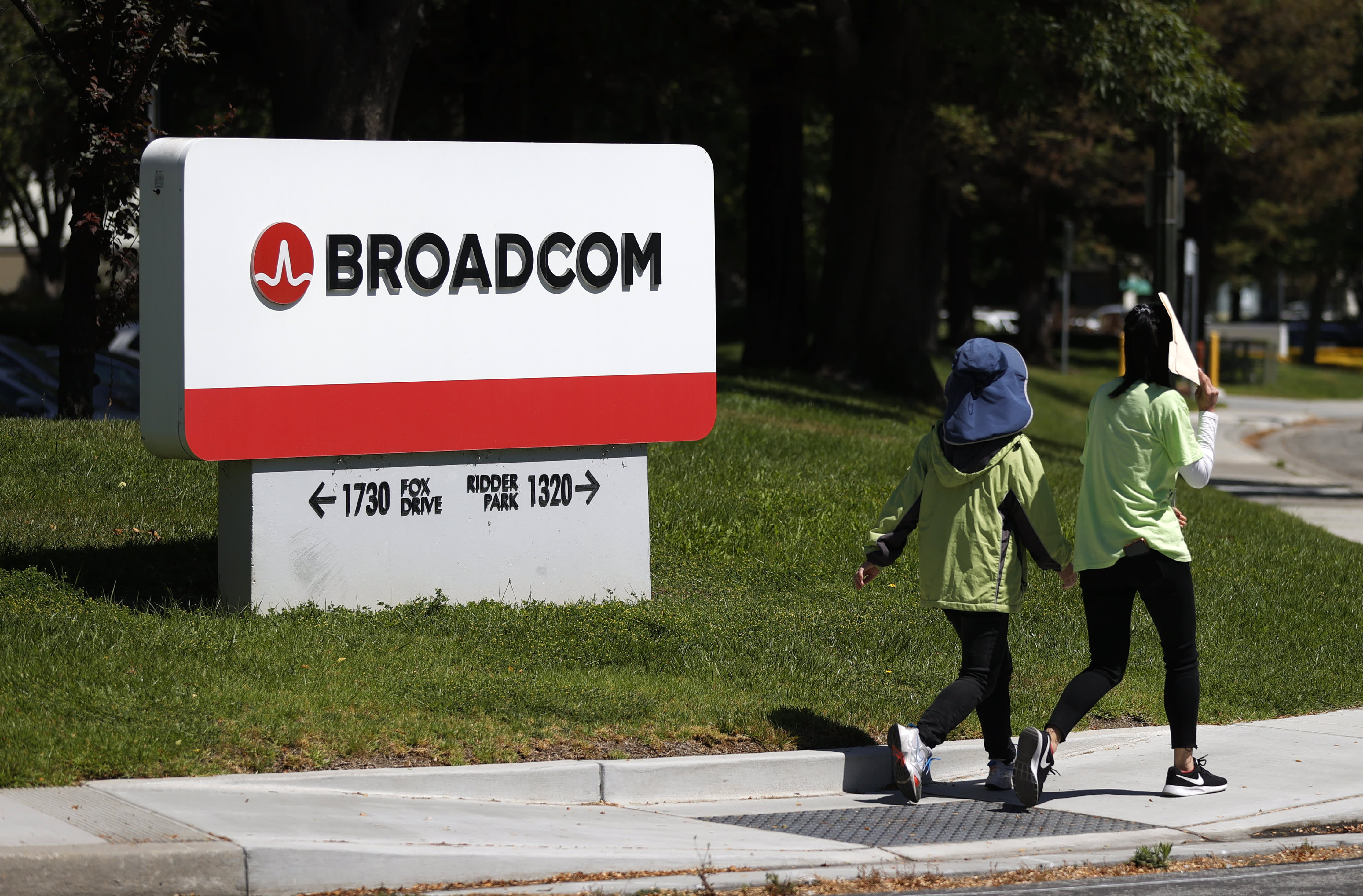The Federal Trade Commission accused computer chip supplier Broadcom of illegally monopolizing the market for semiconductor components, the agency announced Friday.
Broadcom shares were down about 2% on the news.
The Commission voted unanimously to file charges against the company, with newly-appointed chair Lina Khan not participating in the vote. At the same time, the Commission voted to accept a proposed consent order signed by Broadcom for public comment.
The proposed agreement would prohibit Broadcom from entering some exclusivity or loyalty contracts with certain customers and require the company not to condition access to chips on exclusivity or loyalty deals. It would also prohibit Broadcom from retaliating against customers that deal with its competitors.
In a statement, Broadcom said, “We are pleased to move toward resolving this Broadband matter with the FTC on terms that are substantially similar to our previous settlement with the EC involving the same products. While we disagree that our actions violated the law and disagree with the FTC’s characterizations of our business, we look forward to putting this matter behind us and continuing to focus on supporting our customers through an environment of accelerated digital transformation. We are equally pleased that the FTC investigation into our other businesses has been closed without action.”
The FTC alleged in its complaint that Broadcom has used exclusive deals to illegally monopolize markets for computer chip components, known as semiconductors, that deliver television and broadband internet.
Broadcom settled with the European Commission in October 2020 as antitrust regulators in the region similarly took issue with its exclusivity deals. Under that deal, Broadcom agreed to suspend such exclusivity agreements and comply with the agreement for seven years.
The FTC said in a release that Broadcom is “one of the few significant suppliers of five related types of chips.” The Commission alleged Broadcom illegally maintained monopoly power through long-term agreements with at least ten original equipment manufacturers that make set top boxes and broadband devices. The agreements allegedly prevented those OEMs from buying chips from Broadcom’s rivals. The FTC alleged Broadcom made similar deals with major service providers, as well.
“By entering exclusivity and loyalty agreements with key customers at two levels of the supply chain, Broadcom created insurmountable barriers for companies trying to compete with Broadcom,” the FTC said in the release.
The announcement comes as the world is still feeling the impact of a major semiconductor shortage in the midst of the pandemic.
The charge also comes on the heels of the Commission’s first public meeting under Khan on Thursday. At the meeting, Khan, a Democrat, made clear through her agenda that the FTC would take on a much more proactive role in antitrust enforcement under her leadership.
While the issues that came to a vote Thursday fell on party lines, the agency’s two Republican commissioners notably voted with Democrats on Friday’s charges against Broadcom.
“Today’s complaint reflects the Commission’s commitment to enforcing the antitrust laws against monopolists, including in high-technology industries,” FTC Bureau of Competition Acting Director Holly Vedova said in a statement. “America has a monopoly problem. Today’s action is a step toward addressing that problem by pushing back against strong-arm tactics by a monopolist in important markets for key broadband components. There is much more work to be done and we need the tools and resources to do it. But I have full confidence in FTC staff’s commitment to this effort.”
WATCH: Chip shortage slows production of game consoles, cars and more
